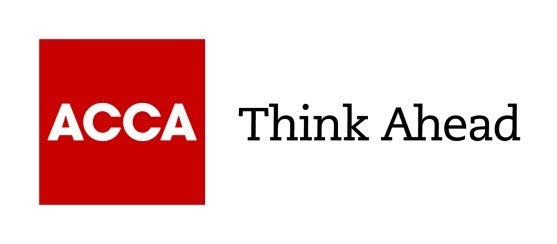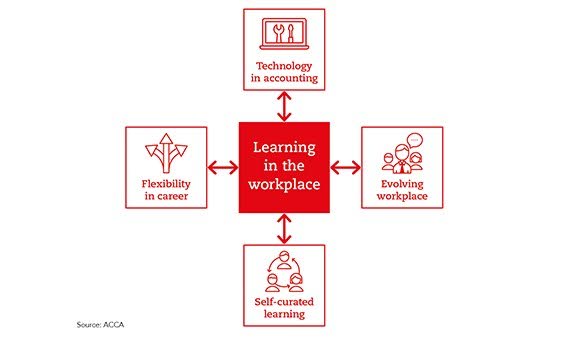Learning for the Future:

MARIA SOOKDEO, ACCA Business Development Manager
The accountancy profession faces significant challenges arising from social and technological change. Careers are longer and paths are increasingly less linear. Digital innovations in finance and accounting present both an opportunity for accountants to move up to more value-adding roles and responsibilities, but could also mean others are at risk of getting marginalised if they are not open to change.
Growing regulations and governance, globalisation, and increased use of digital technologies together mean the world is a more complex place for the professional accountant. As a result careers can look very different from those of the past but skills remain vital to on-going development. At the same time we are increasingly adopting more flexible career paths. We are moving from the traditional, so called ‘ladder’ path to a more dynamic path or lattice where we make career choices aligned to our personal growth agendas. Individuals are also taking control of their own development – actively acquiring the new skills to progress rather than waiting for employer-led development opportunities.
ACCA’s most recent piece of research indicates that there are four dynamics of change:
• Technology in accounting
• Evolving workplace
• Flexible careers
• Self-curated learning
Technologies are having an impact on accounting processes and are changing the ways of working. Tasks are being automated and roles are being squeezed. Businesses have different expectations of new entrants and interpretation of data, communication, vision and strategy are now top responsibilities for future accountancy professionals. While these trends are slower in happening in the Caribbean, nonetheless, it will become a reality across the board in the not to distant future.
In the Caribbean, there has been the traditional reliance on the employer to support finance professionals along learning lines, ie the provision of funding for continuous professional development, in-house training opportunities and supply of learning resources. This is decreasing. Finance professionals in this region are now seeking more diverse learning opportunities from the roles that they choose and the experiences that they gain. Nowadays, to assume there is one clear path that can be rolled out at organisational level is outdated.
While employers must embrace the variability of content and providers now available, learners must become more educated as to what activities they can undertake to achieve the performance level to which they are aiming. The availability of online options now makes this an even simpler-to-obtain reality.
The successful accountant of the future is one who recognises the need to develop their skills continuously. They take responsibility for their own development but accept that while they need to keep technically proficient, they also need to ensure that they have the softer skills needed to interact in the desired way.
In the workplace, learning and development is becoming much more of a personalised journey in which individuals achieve the required level of performance through a blend of learning interventions, supported by on-the-job reflection and mentoring. While aligning organisation’s learning strategy to company-wide’ objectives, employers should endeavour to create, lead and maintain an effective culture that supports continuous learning as a long term project, recognising and rewarding learning as an investment essential for growth.
According to a background paper coming out of the 10th ILO meeting of Caribbean Ministers of Labour in 2017, “Equipping the workforce with the skills required for the jobs of today and those of the future is a key objective for policy-makers. Education, training and lifelong learning are fundamental to creating greater opportunities for decent and productive work for women and men. There is no question that the ability to sustain economic transformation in the Caribbean will depend on whether the workforce can be trained through lifelong learning.”
At government level, the implications of the changing world of work also mean that more attention and resources may have to be deployed nationally to ensure that countries’ populations are equipped to face those changes – ignoring such trends eventually poses the threat that governments will have to deal with huge rises in unemployment and associated public expenses.
Embracing continuous learning requires both a certain mindset and, probably, a kind of paradigm shift for many. Organisations in the Caribbean therefore need to ensure that they foster a culture of openness to developing by embracing the learning strategy as part of the overall business strategy.


Comments
"Learning for the Future:"